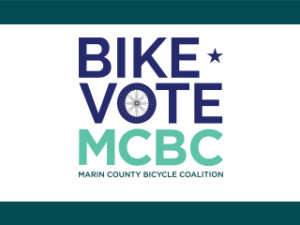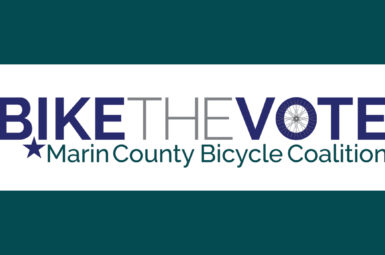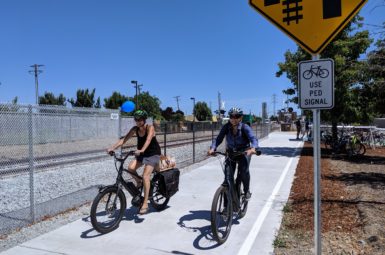June 2022 Election 2022 California Assembly District 12 Candidate Questionnaires
As a 501(c)3 nonprofit organization, Marin County Bicycle Coalition cannot endorse candidates for public office, but we are able to share information so that you can arrive at your own conclusion. Below are the 2022 California Assembly District 12 candidates’ responses to our questionnaire on bicycling in Marin. We have made no content changes. Thanks to the candidates for their time and thoughtful answers.
Candidates’ campaign websites may be accessed by clicking on those with a highlighted name. Those who did not provide a campaign website are not highlighted.
November 2022 Update: Damon Connolly and Sara Aminzadeh were the two candidates to advance from the May primary and are now competing in the November general election.
Here are the candidates on the June ballot for California Assembly representing Marin and Sonoma Counties:
-
Ida Times-Green
Personal Travel
1. Do you ride a bicycle? If so, for what purposes and how often? (transportation/road/mtb)
Damon Connolly:
-
a. Commuting:
-
b. Errands:
-
c. Road recreational:
-
d. Mountain biking or trails:
Yes, I ride a bicycle for all the above purposes. I go 2 months every year without driving a car to see how our transit systems and bicycle and pedestrian infrastructure work, and I rely heavily on my bicycle to do this. It is a personal challenge I have been doing as #RideWithDamon for six years, and generally log over 1,000 miles personally while also encouraging others to join me. I also use my bike throughout the year at least 1 day/week.
Ida-Times Green:
No response
Sara Aminzadeh:
-
a. Commuting: Rarely (I work primarily from home)
-
b. Errands: Rarely
-
c. Road recreational: Sometimes
-
d. Mountain biking or trails: Rarely
Steve Schwartz:
-
a. Commuting:
-
b. Errands:
-
c. Road recreational:
-
d. Mountain biking or trails:
I love to ride! I like to do some mountain biking, but I’m not hard core. I’ve had a lot of fun on the course at Stafford lake with younger ones in my family. I used to bike commute exclusively when I lived in Sacramento for a couple years. I would ride a bike in suit pants to the State Capitol to my job as Chief of Staff – we kind of had an informal ‘bike commuters caucus’ among the staff. I also bike commuted sometimes to my job in Washington, D.C. at the EPA (Environmental Protection Agency) during graduate school. It’s a bit dangerous to commute from where I live now to my office. I love to rent a bike when on vacation (or work travel) to explore a city slowly – at what I call community speed. I see people, places and things in a different way – and get to appreciate the character.
2. If you own a bike, what type of bike(s) do you have and ride? If not, when was the last time you rode a bike, and where (on vacation, for example)?
Damon Connolly:
I own a Marin Nicasio Road Bike, which I use for commuting and recreational purposes. I am in the market for a new/used mountain bike as my Scott mountain bike is beyond its useful life.
Ida-Times Green:
No response
Sara Aminzadeh:
Yes, our family has an e-bike, which you use to take our 4-year-old son and recreational rides on the bike paths and sometimes to activities/friends homes.
Steve Schwartz:
I have a mountain bike (hardtail) and an old GT hybrid. Last time I rode a bike was a couple months ago, campaigning is a lot of hours.
E-Bike Subsidy
Recent research shows that electric bicycles can be an important tool to decarbonize the personal transportation sector, which currently accounts for 28% of the state’s greenhouse gas emissions. However, the up-front cost of e-bikes (high relative to traditional bicycles) acts as a barrier to uptake, particularly among lower-income families.
California is developing a $10M e-bike subsidy program. While a great start, this is less than 1% of the funds thus far allocated to electric car subsidies, the large majority of which has gone to wealthy households.
3. Do you see a role for increased e-bike subsidies for California? If so, how would you push to expand the program?
Damon Connolly:
Yes, I support increased subsidies for e-bikes in California. Expanding this program, and the availability of grants to buy e-bikes, should be included in the state’s transition plan toward environmentally-friendly transportation.
Ida-Times Green:
No response
Sara Aminzadeh:
Absolutely! Low-income communities are disproportionately directly impacted by pollution and lack access to convenient public transportation. I frequently hear concerns about additional needed service (more frequent service) by Marin Transit, especially in the areas around the Canal neighborhood. Offering e-bike subsidies would provide a parallel and autonomous transportation option for our workforce.
Bike subsidies, Vehicle electrification, accessible walking paths, pedestrian only streets, expanded bike paths, and affordable housing near the workplace can improve communities and save lives. E-bike subsidies will take us a long way in reducing disproportionate localized pollution.
I will always push for legislation supporting low-income and communities of color is critical as we transition away from fossil fuels and prioritize more walkable, breathable, and livable communities. Race is the single most significant predictor of a person living near contaminated air, water, soil, or toxic waste sites. Breathing polluted air and drinking polluted water directly contribute to life-long respiratory complications and cancers and congested streets increase pedestrian deaths. If environmental and climate injustices are left unaddressed, existing racial health disparities will be exacerbated.
Steve Schwartz:
I plan to serve on the budget committee and would support allocation of funding for e-bike subsidies. A lens of equity and inclusion of BIPOC communities needs to be built in from the start. For example, if a state grant program helps non-profit organizations promote the subsidies, priority in awarding these competitive grants needs to go to applicants with a commitment to working with underserved communities.
Bike Parking
After purchasing a bike, a new owner has to have somewhere to put it. This is usually fine as long as someone has a garage, but for residents of multifamily housing, parking a bicycle (particularly a heavy e-bike) can be very difficult. Two years ago a bill was written to incentivize secure bicycle parking in new developments, with a similar bill being introduced in April of this year to help make housing ‘e-bike ready.’
4. Do you see bills like these, that would remove a key barrier to e-bike ownership, as an important part of improving transportation? If so, how would you support them?
Damon Connolly:
Yes, I support bills to improve bike parking infrastructure. I see this as an integral part of our state’s housing and transportation plans, and would vote for AB 3153 and AB 2863 to increase bicycle parking in new developments and incentivize bike riding. If elected to the State Assembly, I would be a champion for this type of legislation and would work with MCBC and other stakeholders to bring it to fruition statewide.
Ida-Times Green:
No response
Sara Aminzadeh:
Yes. This is critical as a matter of equity and climate policy.
Steve Schwartz:
This is very important. I will definitely support and champion incentivizing secure parking.
Car Parking
Cities across the state require large amounts of car parking to be built with every development, from bars to swimming pools, from hotels to houses. Research shows that more parking leads to more driving and drives up the cost of development. Recent bills to free developments from costly mandated parking have been stymied, but this year has seen the introduction of another bill to remove parking mandates near transit, which would facilitate car-free or car-light living.
5. Please discuss your views on the subject of parking reform and whether you would support or oppose efforts to repeal parking mandates at the state level.
Damon Connolly:
Demand for parking varies widely by community, and I don’t think there’s a one size fits all approach to this issue. It’s certainly the case that many communities have overbuilt parking to the detriment of livable communities. I generally support removing parking requirements, especially near transit, but I’m skeptical that a single statewide guidance could reflect the entirety of circumstances in which parking may or may not be needed. Near transit, parking spaces can be reduced and often eliminated, and where they are built, especially in new apartments, we must increase electric vehicle charging infrastructure. Overall, we need to increase the number of spaces for bikes, e-bikes, and other forms of car free mobility and invest heavily in regional transit and safe bicycle and pedestrian infrastructure. Car share spaces are also often a good fit for apartment complexes to incentivize more residents to live without a personal vehicle. New housing should be located near transit to facilitate the ability of residents to live a greener lifestyle that reduces the need for car travel.
Ida-Times Green:
No response
Sara Aminzadeh:
I would support mandates to repeal parking mandates. More parking indeed leads to more driving and we have to embrace the climate reality we face as well as space constraints which require less time in our cars, and more time walking, biking, scooting or on public transportation.
Steve Schwartz:
Parking mandates have been shown to have significant unintentional consequences. We need to encourage use of transit, carpooling/ridesharing and bike to events and work. Broad brush parking mandates can work against this.
Highway Expansion
According to the Intergovernmental Panel on Climate Change, the hour is very late to reduce emissions and hit a 2 degrees C warming target. While EVs have a key role to play in California meeting its greenhouse gas emissions goals, according to the California Air Resources Board, the shift to EVs will not happen fast enough and overall driving must decrease statewide. We know from decades of research that added freeway capacity leads to increases in driving.
6. Do you agree that we have enough freeway capacity and should adjust our spending to focus on repair rather than expansion? What other policies to reduce vehicle miles traveled (VMT), such as smart growth, increased transit frequency, or roadway pricing, do you support?
Damon Connolly:
I agree we should focus on repair of existing freeway infrastructure rather than expansion. And in the limited cases where some expansion is warranted, it should be in the form of adding HOV capacity with additional policies to encourage carpools and reduction of single-occupancy vehicle trips. When looking at projects like bridge and tunnel connections (see the Bay Bridge), prioritizing complete connectivity for pedestrians, bicyclists, and transit is also a priority. I am a huge proponent of increasing and improving transit options, and will push hard for seamless mobility solutions as a State Legislator. I was an early proponent of SMART and I’m working hard as a board member to make it successful. This will include robust first and last mile options and completion of the promised multi-use path. I will continue to push for electrification of our transit fleet. Congestion management pricing is a concept that has been applied successfully in other countries like the Netherlands and could be part of the solution in California. I’m interested in further pilot projects to see its impact, including with an equity lens.
Ida-Times Green:
No response
Sara Aminzadeh:
Yes. It’s critical that we diversify our commuter options as it reduces vehicle miles traveled and localized air pollution. While bikes and scooters are not accessible to every member of our community, they can offer a great solution to those who have shorter commutes. We must also continue to expand and electrify public transportation such as buses and trains. The state can play a key role in making sure that communities can get to work and school safely and sustainably.
Steve Schwartz:
For me, the low hanging fruit on reducing vehicle miles is around changing state law so that school districts can transport students from outside of their district boundaries. This legislation would need to be written carefully (to address school district’s concerns about losing enrollment), but will make an immediate impact on Sir Francis Drake and many other areas of the District.
Alto Tunnel, SMART, and the Great Redwood Trail
While Marin has seen several important active transportation projects advance to completion (the Cal Park Hill Tunnel, the nearly-open Corte Madera Creek Bridge), other crucial projects have been slower (the SMART pathway), face large barriers (the Great Redwood Trail) or continue to languish (the Alto Tunnel).
7. What role does Sacramento have in advancing larger-scale projects that provide stepwise improvements, but often suffer from funding shortfalls or environmental lawsuits?
Damon Connolly:
It’s the role of the North Bay’s representative in the State Assembly to champion these kinds of projects, and that’s exactly what I intend to do. Serving as Marin County’s representative on the MTC and as a Board Member of SMART, I’ve been a leader in pushing for regional, state, and federal funding for our regional transportation and trail needs, and I could do so much more in the Assembly.
In short, our state government has the capacity to finance visionary projects that help communities develop better transit hubs, pathways, and access to trails, and our regional needs on this front are something I have an intimate understanding of and passion for.
Ida-Times Green:
No response
Sara Aminzadeh:
Our next Assemblymember must be a champion for supporting active transportation projects and be able to secure funding to complete these projects. It’s a priority for me to fund the completion of the vision of the multi-use Pathway that serves north-south and east-west throughout the county and ensure they serve the major bus and train stations, the major employers, and serve our schools.
Steve Schwartz:
Again, as your Assemblymember I want to serve on the Budget Committee where we can bring resources back for projects like the Great Redwood Trail. Senator McGuire has been a champion, I will work closely with him on the Assembly side.
Parks And Trails
As more people head outside for health, exercise, and discovery, available funding to build new trails and maintain existing trails does not meet the substantial needs. In recent years there has been a lack of direction and support at the State level for the establishment of an equitable, diverse and sustainable trail system across California.
8. Do you support AB 1789, the bill that would create a California Trails Commission to promote policies and investment $75,000,000 for opportunities that maximize the health, fitness, and social benefits of non-motorized natural surface trails, trail networks, and greenway corridors?
Damon Connolly:
Yes, I strongly support AB 1789.
Ida-Times Green:
No response
Sara Aminzadeh:
Yes, I strongly support this bill.
Steve Schwartz:
I like the concept, I need to study it more. For now, I can say I’ll prioritize District projects, including the Great Redwood Trail, to make sure we get the resources we need.
Wrap-up
11. Why should people who ride bikes (or those who want to ride bikes but don’t yet) vote for you?
Damon Connolly:
Throughout my public service career I have worked to make Marin County a bike-friendly place out of my belief that biking is a healthy and eco-safe transportation alternative. I enjoy biking, and I also rely on it personally for enjoyment, health, and also as part of my job. As a County Supervisor, MTC Commissioner, and Board Member on Marin Transit, SMART, and Transportation Authority of Marin, I ride to get a better sense of what is working and what is not for bicycle and pedestrian infrastructure in our communities. I believe strongly in pursuing Vision Zero policies, and I will always be an advocate for bike-friendly roads and the creation of dedicated pathways. I am also a strong proponent of mountain biking and have worked on effective implementation of our County’s Road and Trails Management Plan, including the creation of new opportunities such as the Ponti Ridge Trail and Memorial Trail in my Supervisorial District. As your Assemblymember, you can rest assured that you have an ally in Sacramento who shares your passion and is looking out for bicyclists statewide. I’m proudly endorsed by Access4Bikes in this election, as I have been in previous elections.
Ida-Times Green:
No response
Sara Aminzadeh:
I am a two-time appointee as a public representative to the California Coastal Commission, where I have served for nearly six years. I am the only candidate who has experience as a statewide officeholder, practiced at bridging local community needs and concerns on transportation, housing, economic development, and land use with statewide regulatory frameworks and investments. As a California Coastal Commissioner, I have the relationships and expertise to deliver on transformative infrastructure needs to scale solar, offshore wind and other renewable energy supplies, bring water supply projects to fruition, and site and build transit-oriented housing. Not only will I hit the ground running on day one, but am already actively engaged in the legislative and budget negotiation processes and committee processes on key issues for our District.
Accelerating our transition away from fossil fuels is the reason I am running for Assembly. My vision is addressed in some detail in my climate action plan. I would accelerate our current trajectory to aim for zero carbon energy by 2030. This must be done equitably with subsidies and grants programs that make it possible for lower income individuals and communities to access renewable energy and electric vehicles and through investments in good paying jobs for a new green workforce. I do support tying greenhouse gas reduction targets to transportation investments and an increased role for CARB. In addition to vehicle electrification, accessible bike paths, and equitable solutions; it’s also imperative that we focus on programs to inform and assist households with solar panel installation and payment, as well as incentives for weatherization, home hardening, and a transition away from natural gas for heating and cooking. These efforts are a priority and I will play a key role in supporting this critical work.
Steve Schwartz:
I respect bikers and understand the challenges around safety, theft and more. I know how to get things done in the Legislature, because I have been a Chief of Staff to two Assemblymembers previously. I would be proud to represent the birthplace of mountain biking, and the rest of the Marin/Sonoma District. Supporting cycling and mountain biking is more than about the important impacts for our climate, health, and reduction of car traffic. Supporting the cycling community will improve quality of life and help communities thrive by encouraging people to slow down and connect at ‘community speed’.

members make it happen!
We’re fighting for a more bike-friendly future in Marin. Are you with us? Join Marin County Bicycle Coalition today.


